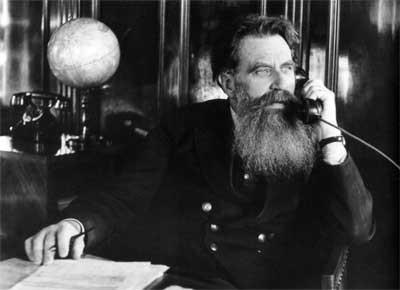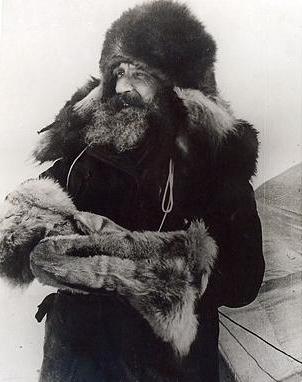Schmidt Otto Yulievich is an outstanding researcher of the North, a Soviet astronomer and mathematician, statesman and public figure, Hero of the Soviet Union, who has achieved worldwide recognition in the scientific field.
At the beginning of a difficult and interesting journey
Who is Otto Yulievich Schmidt and what contribution did this person make to Soviet science?
The future conqueror of the northern lands was born on September 30, 1891 in Belarus (the city of Mogilev). The desire for knowledge and great curiosity Otto showed since childhood. The constant moving of his family from place to place led to a frequent change of schools (Mogilev, Odessa, Kiev). In 1909, Schmidt Otto Yulievich, whose biography is a vivid example of determination, graduated with a gold medal from a classical gymnasium in Kiev, then the Physics and Mathematics Department of Moscow University. In his student years, Otto was awarded the prize for mathematical work. At the end of the educational institution in 1913, a talented young man was left to prepare for a professorship. A significant work in the field of mathematics was the monograph Abstract Group Theory, published in 1916.
Schmidt's brilliant career
The career of Otto Yulievich, a promising assistant professor, was rapidly moving up. Possessing organizational abilities and actively participating in social activities, the young man proved himself in many areas of life. He was engaged in food supply and worked in the Ministry of Food of the Provisional Government, then as the head of the Food Exchange Directorate, while simultaneously studying the patterns of the emission process.
Since the 20s, Schmidt Otto Yulievich taught mathematics in higher education, and since 1929 he headed the Department of Algebra at Moscow University. He proved himself to be the most productive in the field of education: he organized vocational education for school-age youth, created technical schools, provided advanced training for workers in factories and factories, and reformed the university system. It was Otto Yulievich Schmidt (years of life - 1891-1956) who introduced the widespread word “graduate student”.
Work on the Great Soviet Encyclopedia
A brief biography of Otto Schmidt is interesting even to the younger generation, standing at the beginning of life and the path and, possibly, big changes. Under his leadership, a huge publishing house was formed, the purpose of which was not commerce, but cultural and political education.
The fruit of the tremendous efforts and efforts of Otto Yulievich is the Great Soviet Encyclopedia, of which he was the creator and editor-in-chief. In preparing a multi-volume publication, the efforts of many cultural and scientific figures who were interested in the need for socialist transformations were combined. Conducted research has contributed to increasing interest in the problems of the history of science and science. With lectures from these areas, as well as reports of various other subjects, Otto Yulievich often spoke to a wide audience.
Otto Yulievich Schmidt: expeditions
From his youth, Schmidt suffered from tuberculosis, which worsened every ten years. In 1924, a Soviet scientist was given the opportunity to improve his health in Austria. There Otto Yulievich simultaneously graduated from mountaineering school. Being at the head of the Soviet-German expedition, in 1928 he studied the glaciers of the Pamirs. The next ten years since 1928 was devoted to the study and development of the Arctic.
In 1929, an Arctic expedition was successfully formed on the Sedov icebreaker, which successfully reached Franz Josef Land. In Tikhaya Bay, Schmidt created a polar geophysical observatory that examined the lands and straits of the archipelago. In 1930, during the second expedition, islands such as Isachenko, Wiese, Long, Voronin, Domashny were discovered. In 1932, the Sibiryakov icebreaker for the first time in one navigation made the passage from Arkhangelsk to the Pacific Ocean. The leader of this expedition was Schmidt Otto Yulievich.
Expedition success
The success of the expedition confirmed the feasibility of the active development of the Arctic for economic purposes. For the practical implementation of this project, the Main Directorate of the Northern Sea Route was organized , with Schmidt Otto Yulievich as its head. The objective of the institution was the development of a complex route, its technical equipment, the study of polar resources, the organization of comprehensive scientific work. Along the coast, the construction of weather stations revived, a huge impetus was given for ice shipbuilding, radio communications and polar aviation.
Rescue Chelyuskintsev
To test the possibility of cruising transport ships in the Arctic Ocean in 1933, the Chelyuskin steamer, headed by Otto Yulievich and V. I. Voronin, was sent along the Sibiryakova route. The expedition was attended by people of various specialties, including carpenters, sent for the construction of dwellings for winterers. A group of winterers with families was supposed to land on Wrangel Island . The expedition ended in a dramatic way: due to strong winds and currents Chelyuskin was unable to enter the Pacific Ocean. The ship was crushed by ice, and as a result it sank within two hours.

104 people who were on the ice floe were forced to spend two months in a polar winter, until they were rescued by aviation. The pilots who removed the Chelyuskins from the ice, became Heroes of the Soviet Union. In the last days of his stay in ruthless northern conditions, Otto Yulievich fell ill with pneumonia and was transported to Alaska. Cured, he returned to Russia with the world famous hero. The researcher of the North Otto Yulievich Schmidt made reports on scientific successes and possible prospects for the development of the Arctic expanses both in Russia and abroad.
The title of Hero of the Soviet Union was awarded to Schmidt in 1937; the scientist at that time organized an expedition to the North Pole, the purpose of which was to create a drifting station there.
Cosmogonic Schmidt hypothesis
In the mid-40s, Schmidt put forward a new cosmogonic hypothesis about the appearance of the Earth and the planets of the solar system. The scientist believed that these bodies were never hot gas bodies, but were formed from solid, cold particles of matter. Schmidt Otto Yulievich continued to develop this version until the end of his life, together with a group of Soviet scientists.
Schmidt's disease
During the Great Patriotic War, Otto Shmidt, whose biography is an example of a true leader, led evacuation processes and established the activities of academic institutions in a new environment for the country. Since the winter of 1943, tuberculosis has progressed, affecting the entire body. Otto Yulievich was periodically forbidden by doctors to speak; he was often treated in sanatoriums, and in the last years of his life he was practically bedridden. But at any moment of improvement of his condition, he worked hard and even gave lectures in Leningrad and Moscow. Otto Yulievich died on September 7, 1956 at his cottage in Masing, near Zvenigorod.
Schmidt Otto Yulievich: interesting facts
Otto Yulievich Schmidt's life was full of sharp turns: from a mathematician he was re-qualified as a statesman. Then he became interested in creating an encyclopedia, and then became a pioneer traveler. Some events in the life of this great man took place at his will, others - by coincidence. Otto Yulievich Schmidt, whose brief biography is a striking example for the modern generation, has always worked at full capacity, with maximum efficiency, without allowing himself a single minute of rest. This was facilitated by wide erudition, tireless curiosity, well-organized work, clear logic of thinking, the ability to highlight important details against the general background of multitasking, democracy in human relations and the ability to work with others.

At a certain point, the disease tore this people-loving person from the people, a witty interlocutor, an indefatigable person of creative energy, accustomed to practical public activities. Otto Yulievich Schmidt, whose brief biography evokes the sincere interest of the young generation, did not despair: he still read a lot. Knowing about his imminent demise, he passed away wisely and with dignity. Otto Yuryevich was buried at the Novodevichy cemetery. The man’s memory is capitalized in capitalism in the publication of selected works, assigning his name to the cape on the coast of the Chukchi Sea, the Novaya Zemlya Peninsula, an island in the Kara Sea, a pass, one of the peaks in the Pamir Mountains, and the Institute of Earth Physics.